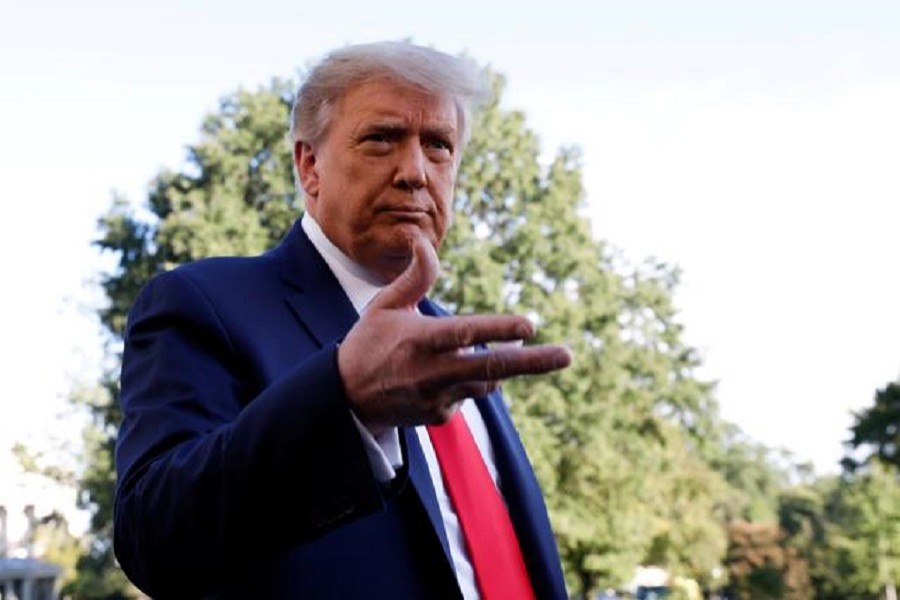US President Donald Trump speaks to the media on the South Lawn of the White House in Washington, before his departure on campaign travel to Fayetteville, North Carolina, US, September 19, 2020 — Reuters/Files
The administration of US President Donald Trump is racing to toughen the process for US companies to hire skilled foreign workers before the end of the year, changes top Trump officials argue will preserve jobs for Americans amid high unemployment and be politically difficult to reverse.
With just weeks to go until the November 3 election, the White House budget office is reviewing a fast-track regulation that would narrow the definition of a “specialty occupation” eligible for a skilled-worker visa under the H-1B program, according to the budget office website and administration officials.
A second fast-track regulation would raise the wages that employers must pay to demonstrate foreign workers will not displace Americans in the same occupation and geographic area.
Trump faces re-election on November 3 and has made immigration a focus of his campaign against Democratic challenger Joe Biden. The measures - along with a planned regulation to clamp down on visas for international students and journalists – could be some of Trump’s final immigration moves before the election.
The last-minute blitz could make the new rules vulnerable to court challenges or, if Biden wins, possible reversal, according to experts. But White House senior adviser Stephen Miller, the architect of Trump’s immigration agenda, argues the policies will have popular support.
“There’s going to be no market for someone to drive back down wages on H-1Bs to displace American workers,” Miller said in an interview, calling the measures “utterly transformative.”
Trump issued a sweeping proclamation in June that blocked the entry of many temporary foreign workers, saying it was necessary to preserve jobs for Americans. The US Chamber of Commerce, the country’s largest business association, sued the administration over that ban and said the planned regulations could create unnecessary hurdles for employers.
“Companies across multiple industries are very concerned about the potential disruption these proposals will inflict upon their operations,” Jon Baselice, the US Chamber of Commerce’s executive director for immigration policy, said in a statement.
Labor Secretary Eugene Scalia told Reuters that his department planned to raise H-1B wage requirements in light of Trump’s June proclamation.
“There’s been concern for a long time that the wages at which H-1B workers are allowed to be brought into the country are too low and are undercutting U.S. workers’ wages,” Scalia said in an interview. “That’s never acceptable, but totally intolerable when you’ve got millions of Americans still out of work because of the pandemic.”
Outsourcing companies typically make up the bulk of the program’s top users and most workers approved for the visas come from India.
Senator Dick Durbin, the second-highest ranking Senate Democrat, cosponsored a bipartisan bill in May that proposed reforms similar to the Trump plans. But he rejected the Trump measures in a statement to Reuters, calling it “an obvious political ploy.”
Some advocates of reforming the H-1B program are also skeptical.
“If they really had prioritized this and cared about it, they would have done it months ago, if not years ago,” said Daniel Costa, director of immigration law and policy research at the left-leaning Economic Policy Institute.


